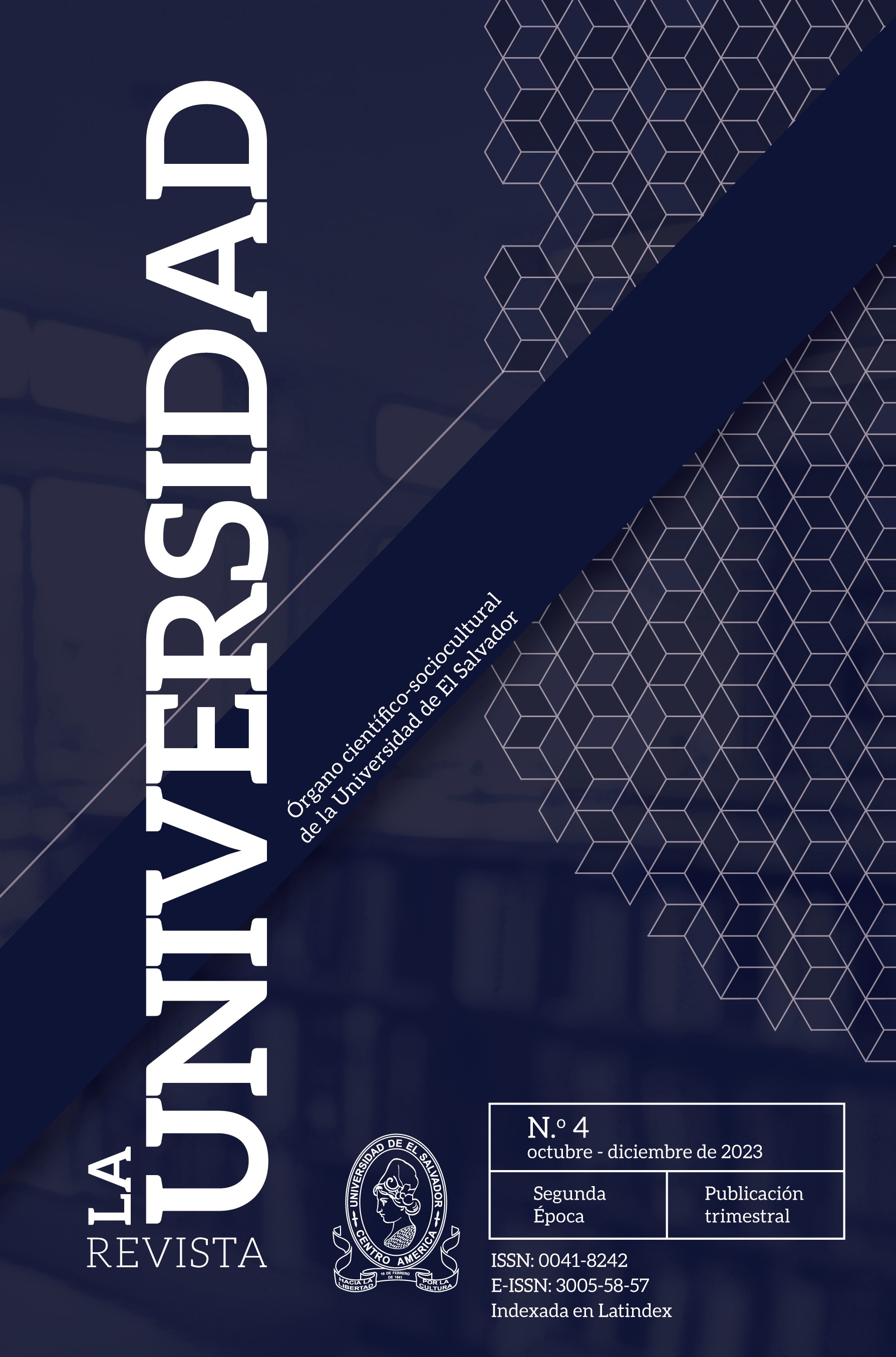Transdiscipline, environmental education and community development sustainable
Keywords:
Education, environment,, ransdisciplinaryAbstract
This article shows the importance of raising the level of updating the knowledge of teachers, researchers, community activists and other social actors, based on transdisciplinary theoretical and methodological advances. Among its objectives is to promote transdisciplinary teamwork among all social actors directly or indirectly involved in environmental education. From this perspective, the aim is to dynamize the exchange and articulation of knowledge and experiences, information management and theoretical-methodological and practical consensus, in order to guarantee the sustainability of university extension services to contribute to the solution of complex environmental problems in the most vulnerable communities in the region, state or territory that is the object of the research. At the same time, the work suggests a comprehensive diagnosis of the real situation of environmental education in the selected scenarios, its impacts and transformation measures in the following dimensions: socio-economic, axiological, health, organizational, educational, cultural, sports, recreational and ecological, in order to generate practical and applicable answers for the promotion of public policies and strategies, as well as entrepreneurial self-organization processes in the most vulnerable communities, aimed at guaranteeing their sustainable human development. Finally, the work is aimed at promoting scientifi c-technological development, through its endogenous adaptation to the communities, to minimize the impacts on the biosphere and human health of pollution generated by the processes of production and consumption of goods and services.
Downloads
References
Carson, R. (1994). Primavera silenciosa. Barcelona: Luís de Caralt Editor.
Checkland, P. (1981). Systems Thinking Systems Practice. New York: Wiley.
Delgado-Díaz, C. (2006a). Bioética y medio ambiente. La Habana: Félix Varela.
Francois, Ch. (2009). Transdisciplinariedad, cibernética y sistémica para comprender la realidad. Una nueva metodología para la gestión de las situaciones multifacéticas de la realidad. Pensando la Complejidad(VII), 3-7.
García-Rodríguez, J.F. & Betancourt, J. (2010). Enfoque de los sistemas complejos en Salud. Tabasco: Dirección de Calidad y Enseñanza en Salud de la Secretaría de Salud del Estado.
García-Rodríguez, J.F.; Betancourt, J.; Martínez-Álvarez, F. (2011). Transdisciplina y desarrollo humano. Tabasco: Editorial Dirección de Calidad y Enseñanza en Salud de la Secretaría de Salud del Estado.
Herrscher, E. & et al. (2012a). Primeras Conversaciones del Extremo Sur. Ushuaia: Universidades Nacionales de Tierra del Fuego y de la Patagonia.
Herrscher, E. (2003). Pensamiento sistémico. Buenos Aires: Editorial Granica.
Herrscher, E. (2007). El Círculo virtuoso. Cambiar-Planificar-Aprender- Cambiar. Buenos Aires: Editorial Granica.
Herrscher, E. (2011). La Transdisciplina en la educación. En J. García, & J. &.-Á. Bethencourt, La Transdisciplina y el desarrollo humano (págs. 125-131). Tabasco: Editorial Dirección de Calidad y Enseñanza en Salud de la Secretaría de Salud del Estado.
Leopold, A. (1949). A Sand Country Almanac, with other essays on conservation from Round River y Land Ethics.
Lovelock, J. (1992). Gaia. Una ciencia para curar el planeta. Barcelona: Editorial Integral.
Luengo, N.A.; Martínez-Álvarez, F.F. (2018). La Educación transdisciplinaria. Buenos Aires: Comunidad Editora Latinoamericana.
Lustosa, M.C.; Yone, P. & Martínez-Álvarez, F. (2010). Veredas Interdisciplinares. Maceió: Universidade Federal de Alagoas.
Margulis, L. (2002). Planeta simbiótico. Un nuevo punto de vista sobre la evolución. Madrid: Editorial Debate.
Martínez-Álvarez, F.F. & Cuenca-Díaz, M.M. (2017). La perspectiva transdisciplinaria y la metodología de la investigación social. En N. Quevedo, La lógica del proceso de investigación (págs. 37-51). Quito: Editorial Jurídica del Ecuador. Universidad Regional Autónoma de los Andes.
Martínez-Álvarez, F.F. (2011). Fundamentos epistemológicos para la construcción de una Educación transdisciplinaria en Cuba. Tesis de Doctorado. La Habana: Centro de Perfeccionamiento de la Educación Superior de la Universidad de La Habana. Disponible en: http://revistas.mes.edu.cu/greenstone/collect/repo/index.
Martínez-Miguélez, M. (2009). Transdisciplinariedad: Un enfoque para la complejidad del mundo actual. Revista Pensando la Complejidad (La Habana), III(7), 13-29.
Montero, J.M. (2006). Surgimiento y auge del concepto desarrollo sustentable. Cuba Socialista. Marzo.
Rodríguez-Zoya, L. & et. al. (2018a). La emergencia de los enfoques de la complejidad en América Latina. Tomo I. Buenos Aires: Comunidad Editora Latinoamericana.
Varona-Domínguez, F. (2008a). Alcance filosófico del empleo del enfoque complejo en el estudio de la relación cultura - educación superior. Pensando la Complejidad(IV).
Downloads
Published
Issue
Section
License
Copyright (c) 2024 Authors who publish in Revista La Universidad agree to the following terms: Authors continue as owners of their works, non-exclusively assigning dissemination rights to La Universidad Journal under the standards of the Attribution-NonCommercial-ShareAlike License: CC BY-NC-SA 4.0. This license allows the use of a work to create another work or content, modifying or not the original work, as long as the author is cited, the resulting work is shared under the same type of license and has no commercial purposes(https://creativecommons.org/licenses/by-nc-sa/4.0/deed.es).

This work is licensed under a Creative Commons Attribution-NonCommercial-ShareAlike 4.0 International License.





